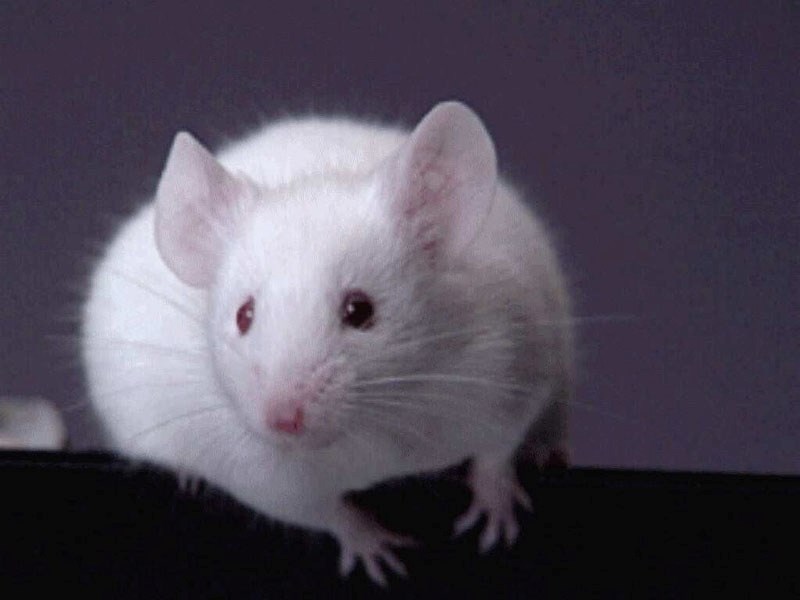A new study of rats suggests that they are hard-wired to help each other, even when there’s chocolate involved.
Neurobiologist Peggy Mason co-authored a study on empathy in rats and the results were published last week in the prestigious academic journal Science. The study, which involved rats, chocolate and a diabolical trap, sought to see if rats could engage in pro-social behaviour.
Previous studies suggest that rats, like other creatures, sympathize with the distress of others, said Mason, a professor at the University of Chicago. “It’s the most rudimentary form of empathy,” she said, and her team wanted to see if rats would take the next step of helping out the distressed — a fundamental act to any social group.
Mason and her team took pairs of white rats and put them in a Plexiglas arena. One was placed in a clear holding tube that could only be opened from the outside. The other was outside the tube, and could hear, smell and touch the trapped rat through gaps in the tube. The team waited about 40 minutes to see if the free rat would liberate the trapped one by flipping open the tube’s door, after which they freed the trapped one.
After about seven days of testing, during which the free rats bit, dug and scratched at the trap, the free rats figured out how to free the prisoners, eventually doing so within minutes during subsequent tests.
“That’s a phenomenal finding,” Mason said. “Here’s this rat actively helping another rat.”
The rats did not open traps that were empty or that contained a toy rat, suggesting that the presence of a distressed prisoner was important. The rats were just as likely to free a prisoner into an adjacent room, suggesting that the reward of being able to play with the prisoner was not a factor. Female rats were more likely to free prisoners than males, the study found, suggesting that females may be more empathic.
The team next presented the rats with a fiendish choice: freedom or chocolate?
“We basically wanted to say to the rat, ‘How valuable is it to you to liberate the trapped rat?’” Mason said.
Here, the rats had a choice as to which of two traps to open first: one with a prisoner, or one with five chocolate chips. The rats were just as likely to free the prisoner first as they were to get the chocolate, suggesting that the rats valued the prisoners at least as much as chocolate.
Then the rats did something really shocking, Mason said.
“We realized that the free rat was not eating all of the chocolate.” Instead, the free rat left about 1.5 chips for the prisoner to eat. “In rat terms, that’s remarkable.”
This research suggests that rats will help each other out when they’re in trouble, the study concludes, regardless of the reward. That’s an important lesson for people as well, Mason said.
“Our biological inheritance is to help each other,” she said, and we work against it when we don’t. “We’ve evolved to be nice.”
A new study suggests that fear of predators has a bigger impact on song sparrow numbers than the predators themselves.
Biologist Liana Zanette at the University of Western Ontario and her team published a study in last week’s issue of Science on the effects of perceived threats from predators on wild songbird populations.
“The traditional view of predator-prey relations is that predators kill prey and that’s it,” Zanette said in a teleconference, but some researchers believe that fear also has an effect. If birds are too scared to mate, for example, their numbers will fall.
The team tested this theory on wild song sparrows on B.C.’s Gulf Islands. First, they isolated several bird colonies from predators using nets and electric fences and monitored them with video cameras, eliminating any chance of death by predation. Each was then exposed to recordings of either predator (e.g. racoon, hawk, or crow) or non-predator (seal, goose, loon) sounds periodically throughout a breeding season.
The team found that birds exposed to predator sounds had 40 per cent fewer offspring than those who heard non-predator ones. Scared birds tended to lay fewer eggs and made fewer feeding trips per hour, meaning fewer young ones and lower survival rates.
“Predators affect the population sizes of their prey not just by killing prey,” Zanette said, “but by scaring them as well.”
This was the first conclusive evidence that predators can indirectly affect prey population numbers, Zanette said.
It also suggests that cats may have a bigger impact on songbirds than previously thought, said study co-author Michael Clinchy. Previous research found that cats were responsible for about 22 per cent of nestling deaths; this study suggests that fear of cats could cause just as many casualties.




